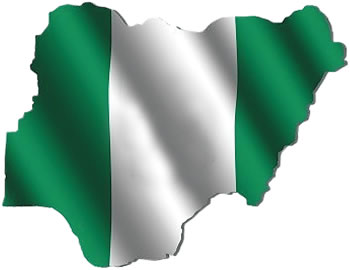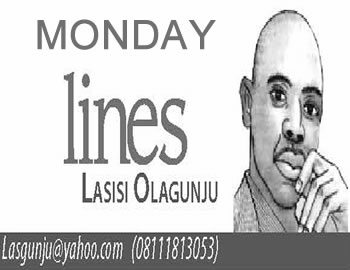
A collapsed building with bleeding survivors trapped under its rubble is not a sight of joy. It is worse when a nation crashes on its citizens. Nigeria scares me. It is cracked from lintel to its foundation. I do not know what you feel. We are a nation on a barber’s chair. We spin round and round like a drunken waif in the market square. Conflict has an orbit, a path around any nation that repeats tragic histories. A stammerer stutters, repeatedly struggling with his words in anger. That is Nigeria. It is bound to repetitive failure, foreboding disaster. Nothing suggests that the remaining months of this year will not task the grit of the strongest and shake the faith of the most optimistic on the future of Nigeria. Northern leaders have set up and given a committee 30 days to recommend its position on the shrill cries for a reconstruction of everything about Nigeria. The 30 days will stop counting by the end of August. The last quarter of this year particularly promises things of interest. Nnamdi Kanu is the Igbos new Zik and Ojukwu combined. He boasts and demonstrates publicly that he owns Igbos 100 percent. He is insisting that there will be no election in Igboland again starting with Anambra’s governorship in November this year. Even before that November date, the east and the north have a date on October 1, 2017. That is the date northern youths gave Igbos to leave the north so that they can have their Biafra.
I said we have not moved an inch from the issues that dogged the childhood of the country. Colonial British Secretary of State, Alan Lennox-Boyd, on 31 July, 1958 in “a memorandum on Nigeria’s Constitutional Conference (1957-1958)” spoke to almost all issues racking the nation today. He wrote on the state of self rule for each of the regions and on the problem of minorities and of the West’s Action Group which he described as “the champion of minorities everywhere.” He wrote on the police and “renewed pressure” for devolution of powers of the police to the regions. He wrote on what he called “fiscal questions” and the “dissatisfaction over the existing division of revenue between the federation and the regions over the powers to raise revenue…” You will think the memo was written this year. The years may have passed, leaders and followers may have come and gone in all the regions but the character of each of the power blocs has not changed a bit.
The North is not a friend of restructuring of Nigeria. It is not the only enemy of national restructuring. The power establishment in all the regions will slam the brake on any move considered injurious to the advantages they enjoy. This dysfunctional federation may not be working for the people but it is working for the power elite and they will preserve it. That is what you saw last week when both the Senate and the House of Representatives roundly defeated a move to devolve the centre’s excessive, corruptive powers without any protest from its “progressive” members who fleeced votes from the people just two years ago with promises to restructure Nigeria. Nigeria enjoys that dubious luck of having historically duplicitous demagogues as national leaders aided by an excitable babble they have as followers. They will continue poisoning the air as long as there are silent accomplices among us as their supporters and sponsors. A British colonial officer, H.R. Palmer wrote in a March 2, 1917 memo that “it will be apparent that the potential sources of danger in Nigeria are rather among people of the ruling caste who are not actually in power, the rather limited class of pious fanatics or clever charlatans and the ignorant peasantry, than among the actual rulers of the country.” He correctly predicted that no agitation for change would work in Nigeria as long as the power elite enjoy the fruits of the structural deficiency. The rulers of the country, he said, would “probably continue in the future, as in the past, to discourage any society or propaganda which might cause an upheaval.” A Nigeria structured to function in a sustainable manner will sack charlatans from power. But no rich inheritor of slaves will vote to abolish slavery. He will lose his wealth, his power and his privileges. None who profits from this huge loss of a country will sing the song of true federalism or vote for devolution of powers to the federating states. It will be fatal to the cause of the unworthy lords.
We may not like the British for giving us a congenitally deformed nation, but we cannot deny them the credit of possessing clarity of mind on where the nation was headed. I invite you to read Lennox-Boyd’s honest assessment of what each part of Nigeria did and could do with power in a truly federal state. It was his assessment of the state of the regions and their leaders in the first few self-governing years preceding independence:
“…The Prime Minister (Alhaji Abubakar Tafawa Balewa) is sagacious and able and relations between him and the Governor-General are frank and cordial. He is openly anti-communist. He is under no illusions about the difficulties of the task facing both himself and the country, and his policy is likely to be as pro-Western as the narrow Muslim outlook of his principal northern supporters will allow. (In his party hierarchy he is only deputy to the leader, the vain and pompous Sardauna of Sokoto, Premier of the Northern Region.) His government, however, has been only a moderate success…
“In the West, the grant of regional self-government has on balance been justified. The Action Group government, led by the Premier, Chief Awolowo, have proved reasonable and competent administrators and, although with the steady run-down of the cadre of overseas officers, there is bound to be some decline in standards of administration, the advanced educational programme of the Region should in time provide sufficient replacements…
“In the East, government has seriously run down. Dr. Azikiwe (“Zik”), leader of the N.C.N.C. remains in power as the personification of Ibo tribalism, but his chronic unwillingness to tolerate around him men of independence of mind has brought into being a Regional Executive Council, almost all of whom are nonentities. Some of the Federal Ministers drawn from his Party, notably Dr. Mbadiwe, have recently lost their posts through constant but so far ineffective warfare against his personal dictatorship of party affairs. His star may be on the wane. He must be left to the disillusionment of his own people.
“The vast Northern Region is still well behind the others in ‘progress’. Two-thirds of its 18 million people are strict Muslims, accepting the authority of their Emirs. Educational progress is still slow and there is no prospect for a generation of the region being able to replace from its own resources the overseas officers who have served them so well. The North fears and dislikes the more educated southerners and if they were not economically bound to the federation would be glad to be quit of it…”
Interesting. Everything here rings true today as if it is not speaking of Nigeria of 1958. The North continues to tolerate the others because it enjoys freebies from the union. It would resist every move to rebuild the cracked structure because its position gives it fresh air. The East now has and worships another Nnamdi as leader. He is also bold, brilliant and haughty as ever. He wants his people “to be quit” of the family house. The West, although stagnated and silted by the present unitary arrangement, has continued to offer hope. It wants this structure re-examined and remodelled for it to last forever. It says let us save this edifice by restructuring it. It however, also says if this house must fall at all, the demolition can be controlled. It doesn’t have to claim unnecessary casualties.




